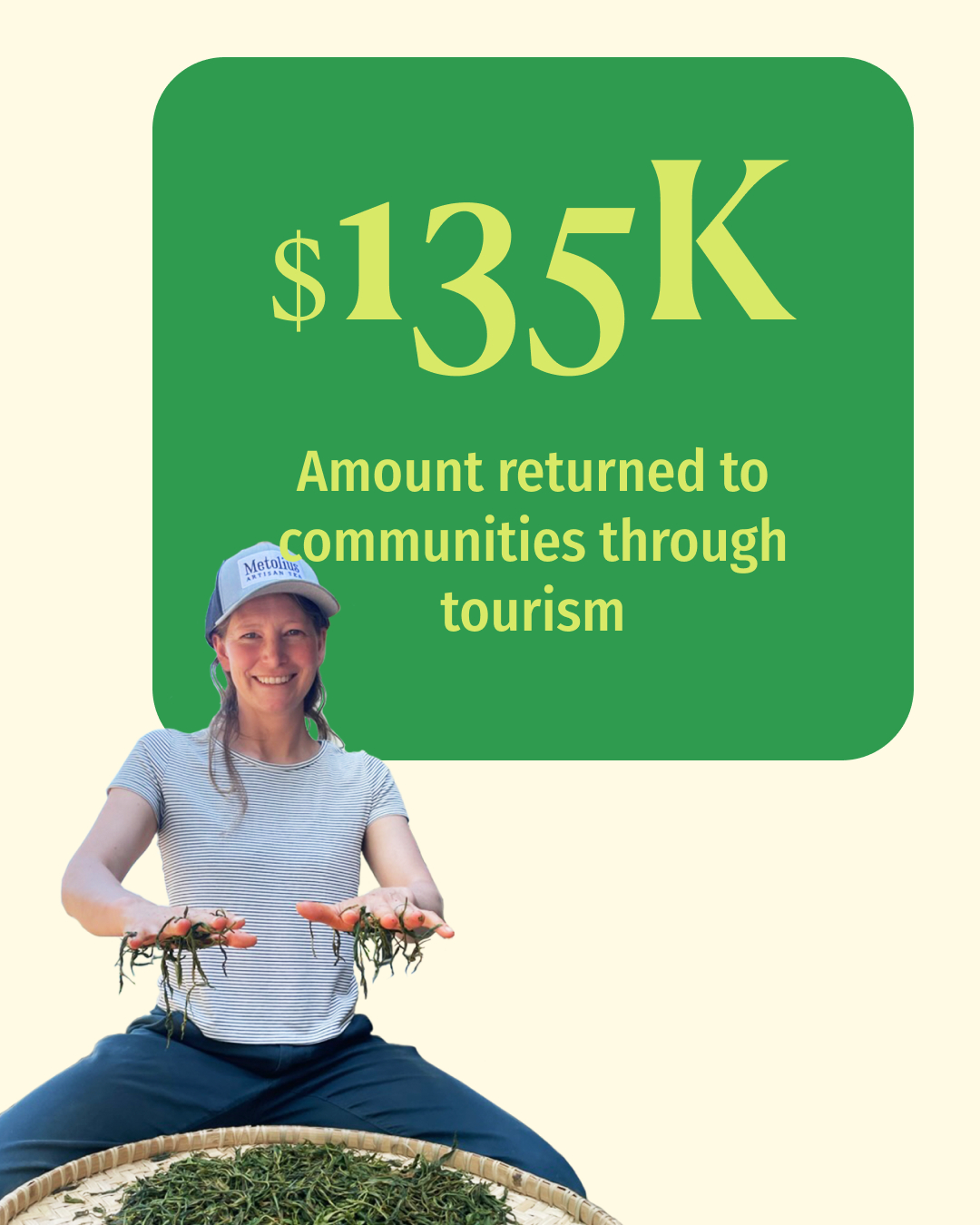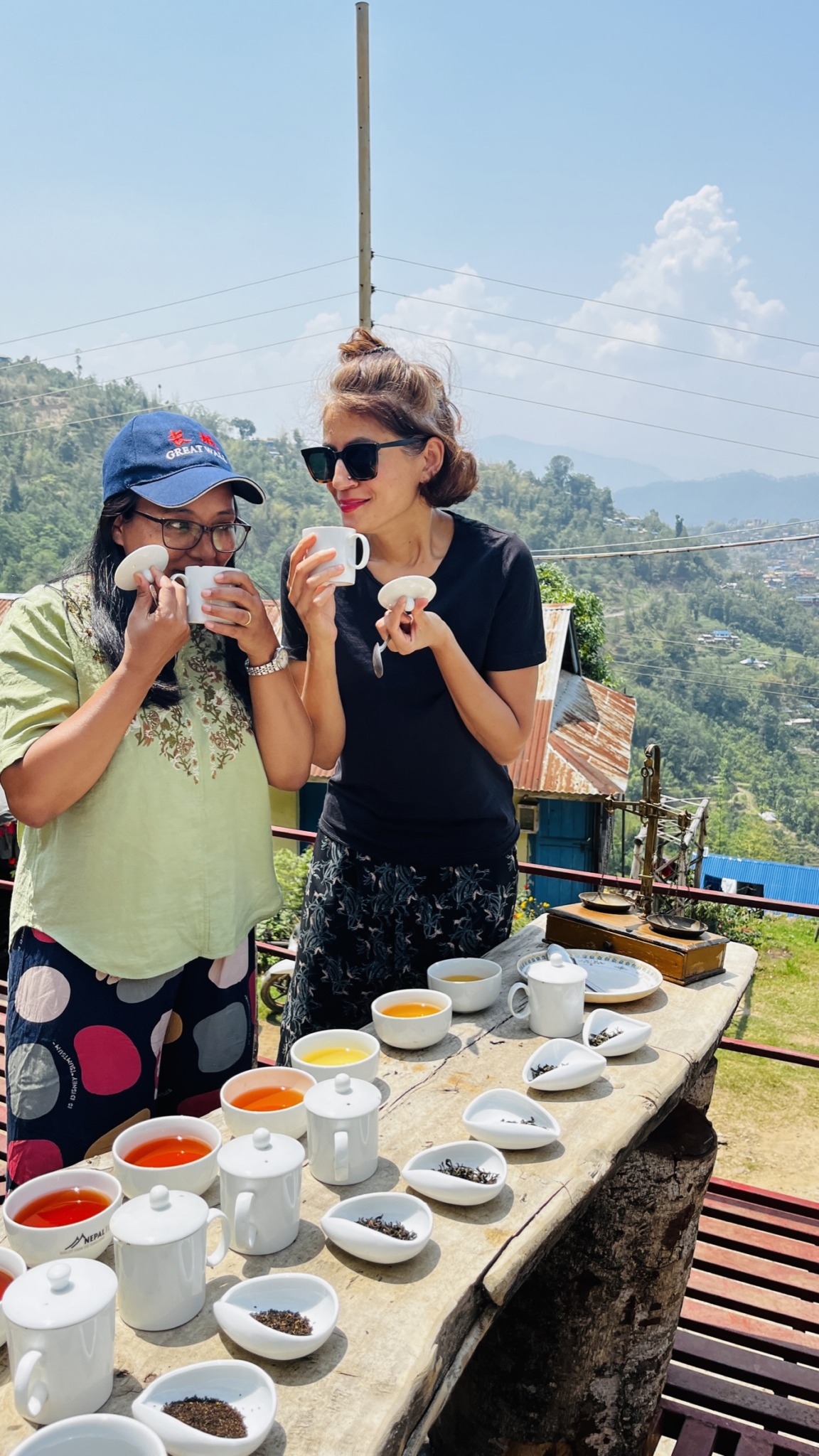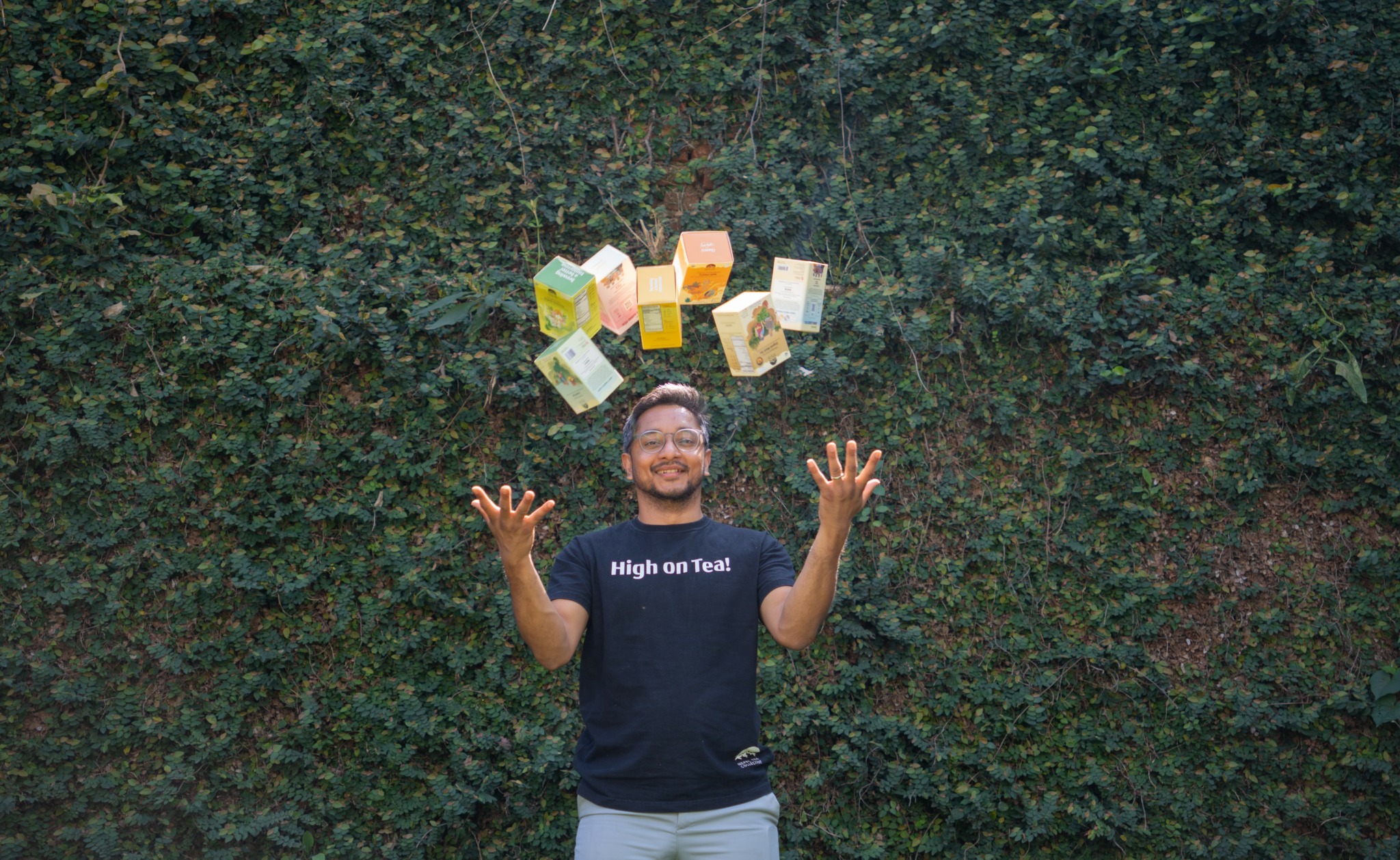We were lucky to catch up with Nishchal (Nish) Banskota recently and have shared our conversation below.
Nishchal (Nish), thanks for taking the time to share your stories with us today We’d love to have you retell us the story behind how you came up with the idea for your business, I think our audience would really enjoy hearing the backstory.
The idea for Nepal Tea Collective was born out of both frustration and hope.
Growing up on my family’s tea farm in eastern Nepal, I saw firsthand the hard work that went into producing world-class teas. Yet when I moved to the U.S. for college, I realized something unsettling. No one really knew Nepal produced tea. Our teas had no identity, no recognition, and certainly no place on the global stage. That absence wasn’t just an issue of branding; it was a matter of justice.
I wanted to solve two interconnected problems.
The first was local: How could a country producing such exceptional teas remain invisible in the global market? Nepali tea needed a voice, a story, and a presence that honored the people behind it.
The second was global: How could tea, arguably the most consumed beverage in the world after water, still leave millions of farmers in poverty? The tea industry lacked transparency and traceability. Consumers didn’t know where their tea came from, and the people who grew it remained nameless and underpaid. That’s the system I set out to change.
With Nepal Tea Collective, I envisioned a model that would use Nepal as the launching pad for a more equitable and transparent tea industry; one where farmers are celebrated, not forgotten. We introduced innovations like QR code traceability, direct tipping for farmers, and a commitment to share 1% of our top-line revenue directly with the producers. We recently became a certified B Corporation, embedding our social mission into our legal structure.
What excites me most is that we’re not just building a tea company. We’re building a movement, one that redefines how tea is sourced, shared, and valued. Because if we can get a small Himalayan nation’s teas onto the global map, and lift the farmers behind them out of poverty, then we can inspire the same transformation in every tea-growing region around the world.
My ultimate vision is bold but deeply personal: to lift one million farmers out of poverty within their generation and within my lifetime by selling the delicious teas they grow with care, pride, and legacy.
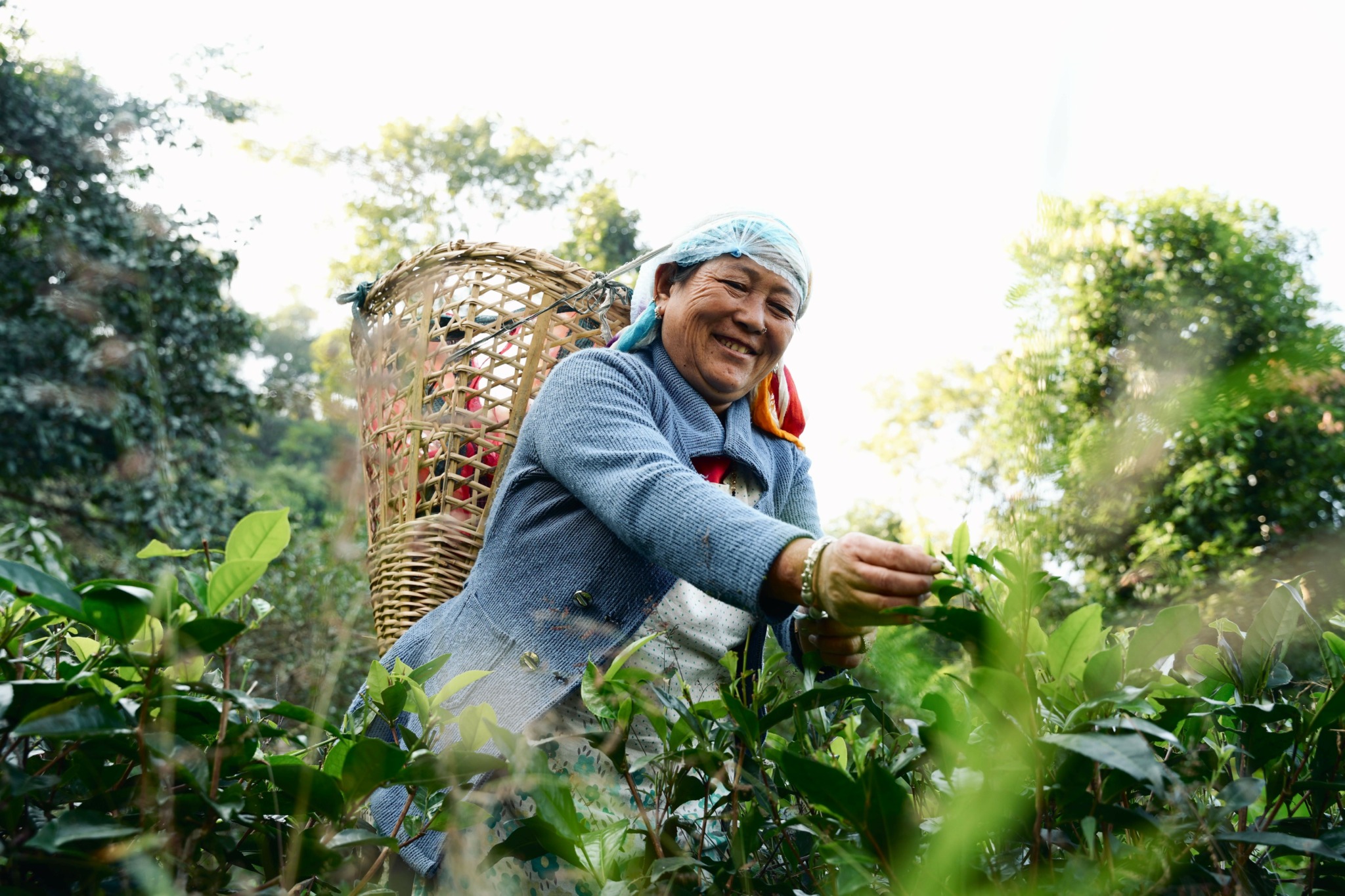
Great, appreciate you sharing that with us. Before we ask you to share more of your insights, can you take a moment to introduce yourself and how you got to where you are today to our readers.
I’m Nishchal (Nish) Banskota, a second-generation tea farmer and founder and CEO of Nepal Tea Collective. Born and raised on my family’s certified organic tea estate, I initially pursued a liberal arts education in the U.S. with aspirations to become a CPA. Yet, growing up around the estates and seeing the transformational impact of tea on my community ignited a deeper purpose in me, the desire to build something meaningful beyond numbers
My journey began when I formally registered Nepal Tea Collective in 2016 after returning from the U.S. Frustrated by how little the world knew about Nepali tea and how farmers remained underpaid despite cultivating some of the world’s finest leaves, I decided to build a bridge between provenance and consumers. I combined my business training with a passion for social impact to tackle systemic issues head-on
Nepal Tea Collective sources certified organic, single-origin tea directly from smallholder farms across Nepal and sells them via both B2C and B2B channels. Our product lineup spans award-winning teas (like White Prakash, medalist at the Global Tea Championship) to blends, tea bar experiences, corporate tastings, and subscriptions.
We’re a Public Benefit Corporation and B‑Corp certified, embedding social mission into our DNA. We pioneered QR-enabled traceability—scan a bag of tea to trace its production date, elevation, garden, and farmer’s photo. We share 1% of top-line revenue directly with farmers and aim to lift 1 million farmers out of poverty within their generation. I am really proud of the fact that we have really worked our way in creating an identity for Nepali teas globally by winning over 24 international tea awards and earning acclaim from outlets like Forbes, the New York Times. Furthermore, it really gives me immense joy to see how we’ve been able to directly impact 1236 farmers till date.
Nepal Tea Collective isn’t just selling tea—it’s leading a movement. Our teas introduce you to the hidden heart of Nepal: its culture, its people, and its resilience. We invite every customer to be part of something bigger: enjoying delicious, ethically sourced tea while uplifting communities in Nepal. One cup at a time, we’re redefining what it means to drink with purpose.
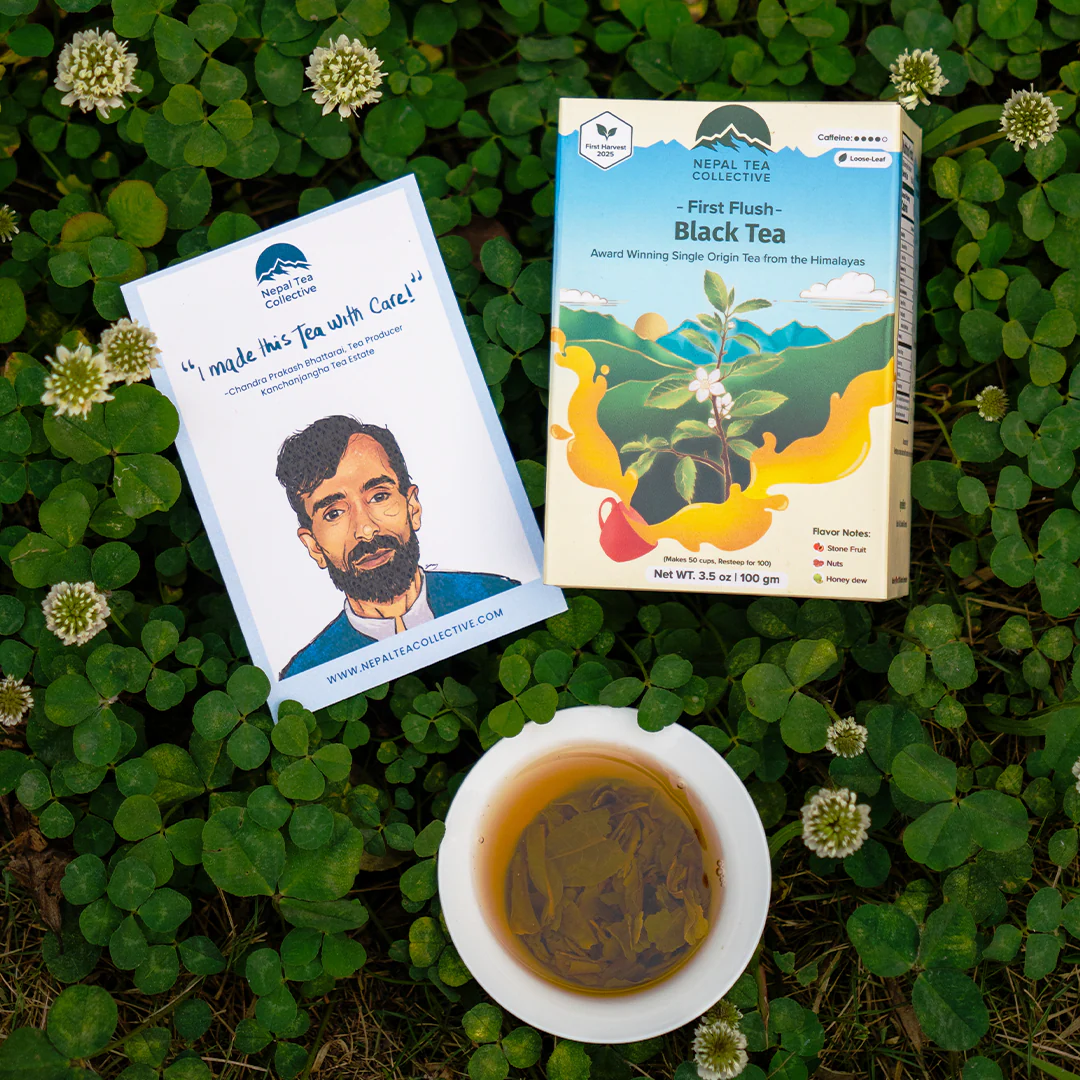
Can you open up about how you funded your business?
I’ve always believed in the power of community, and Nepal Tea Collective is living proof of what that belief can build.
Back in 2016, I had an idea to bring Nepali teas to the global stage while building a more equitable supply chain for the farmers behind them. But I didn’t have deep pockets or VC backing. What I did have was a vision and a willingness to share it with the world.
So I turned to Kickstarter. And 484 strangers believed in that vision enough to back me. That campaign didn’t just give us the initial capital to launch, it gave us validation. It proved that people cared about traceable, high-quality teas and the stories of the farmers who grow them.
Since then, our journey has continued to be powered by community. Most recently, we raised nearly $700,000 through equity crowdfunding, welcoming over 200 micro-investors, many of whom invested as little as $250. That was especially meaningful because it allowed anyone, regardless of wealth or background, to become an owner in our mission. These weren’t just financial backers; they were believers in a better tea industry.
This grassroots funding model has always aligned with our values. We’re not just building a business; we’re building a movement. And that movement is powered by everyday people who care about what’s in their cup and who made it possible.
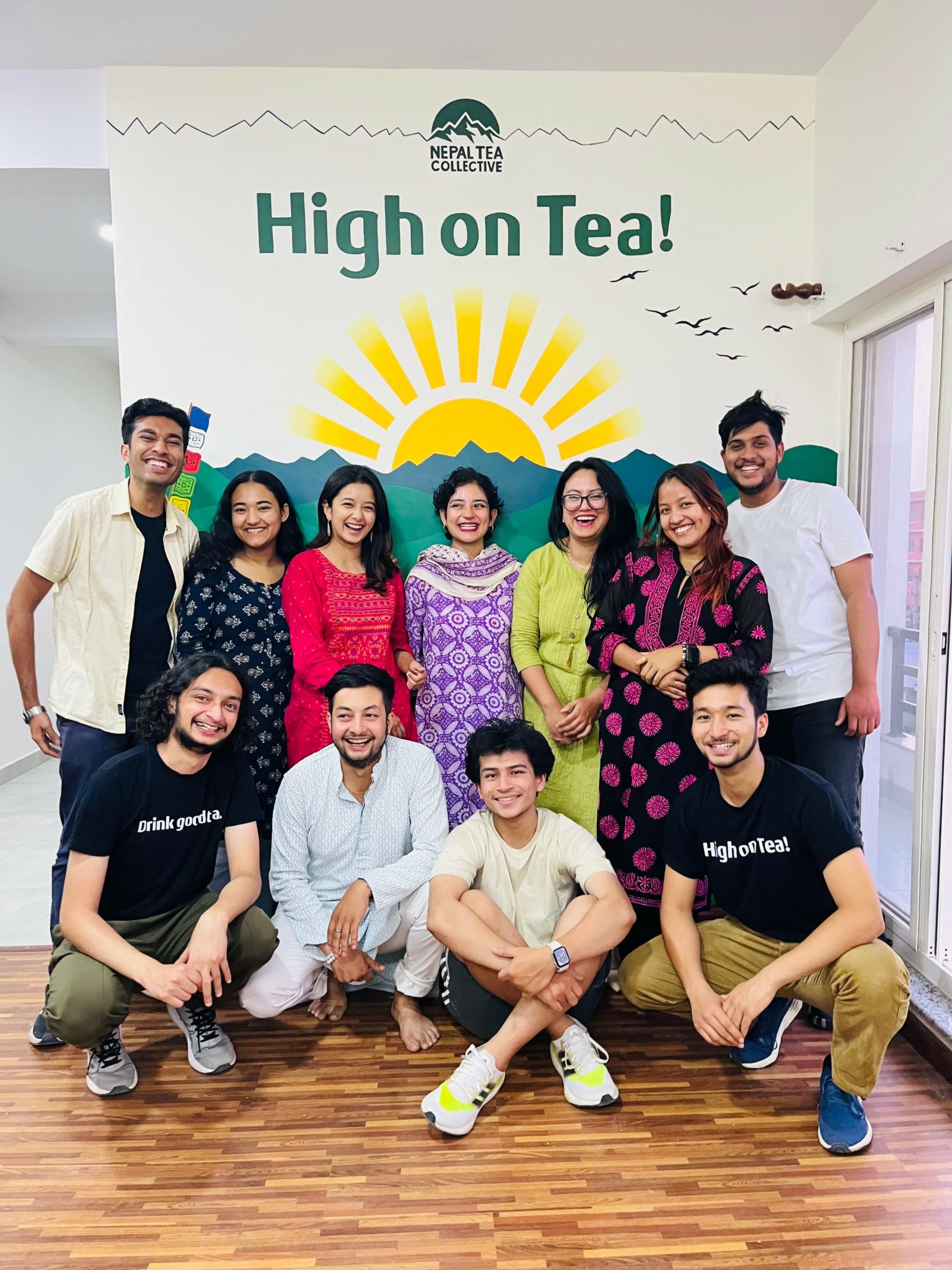
What’s a lesson you had to unlearn and what’s the backstory?
One of the biggest lessons I had to unlearn was this: business isn’t about having the perfect plan; it’s about having the courage to start.
Coming from a business background, I was taught that success comes from meticulously crafted business plans, thorough market research, detailed projections, and flawless strategies. That’s what most business classes and books will tell you: plan everything, then act. But when I actually started building Nepal Tea Collective, I realized that reality looks very different.
In the beginning, I tried to follow the textbook path, drafting endless plans, tweaking presentations, gathering data, but at some point, I noticed I was just circling the runway and never taking off. The deeper I went into research, the more overwhelming it became. And honestly, if I had let all that analysis guide my actions, I might have never launched at all.
So I unlearned that mindset. I started believing that momentum matters more than mastery. You learn by doing, not by waiting to be perfectly ready. I’ve made mistakes, course-corrected, adapted, and grown and that’s where the real magic of entrepreneurship lies.
Now, when people ask me for advice on starting a business, I tell them the same thing: don’t over-plan yourself out of starting. Take that first messy, imperfect step and then keep moving. The rest will follow.
Contact Info:
- Website: https://nepalteacollective.com/
- Instagram: https://www.instagram.com/sipwithnish/
- Linkedin: https://www.linkedin.com/in/nishchal-banskota/

